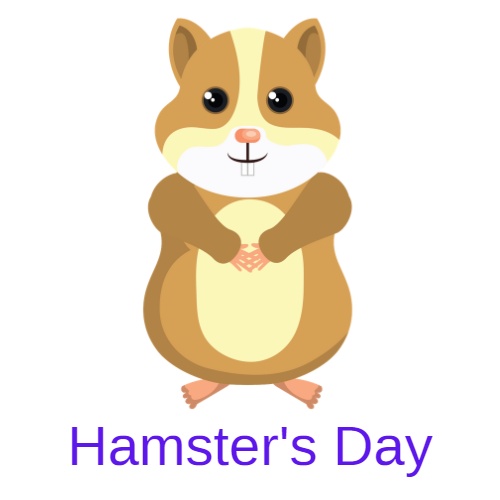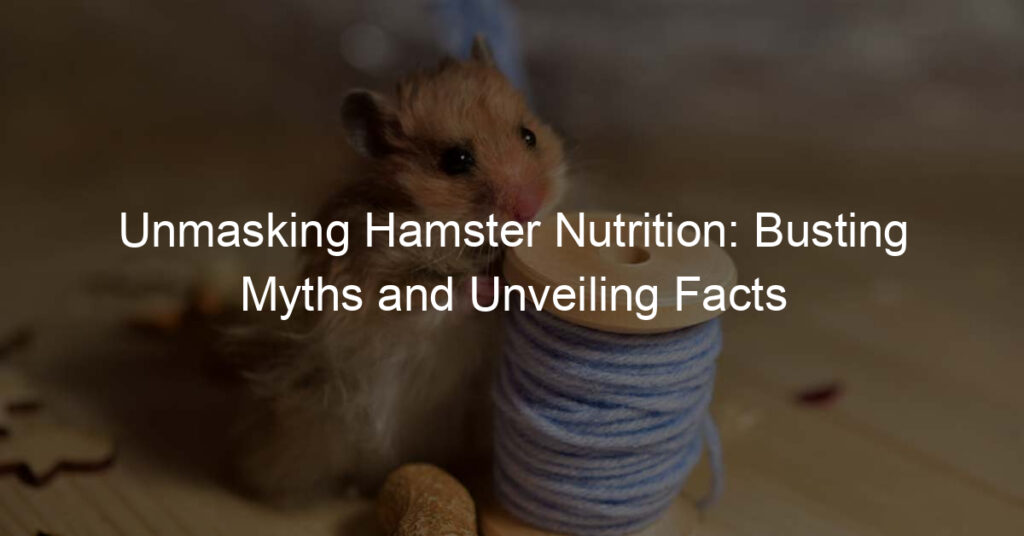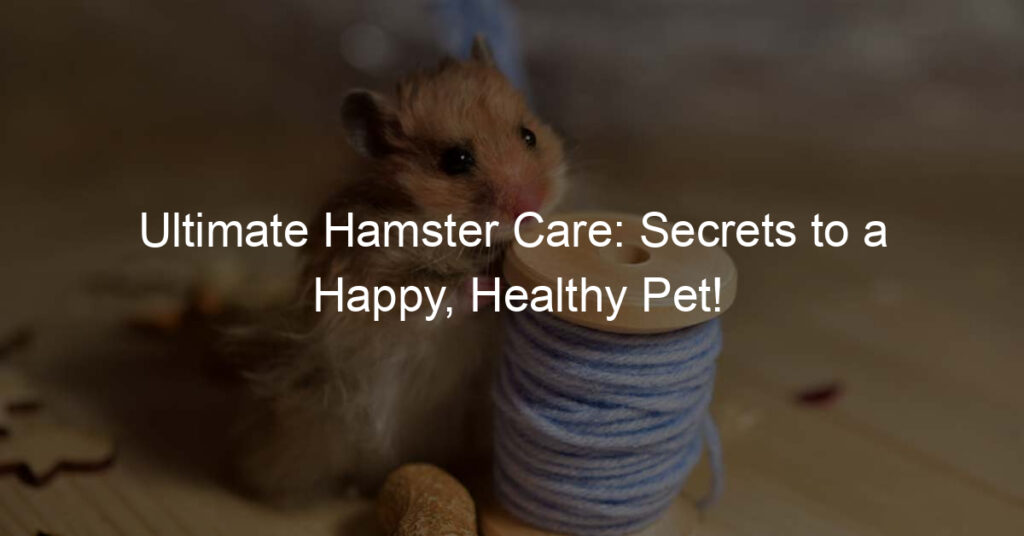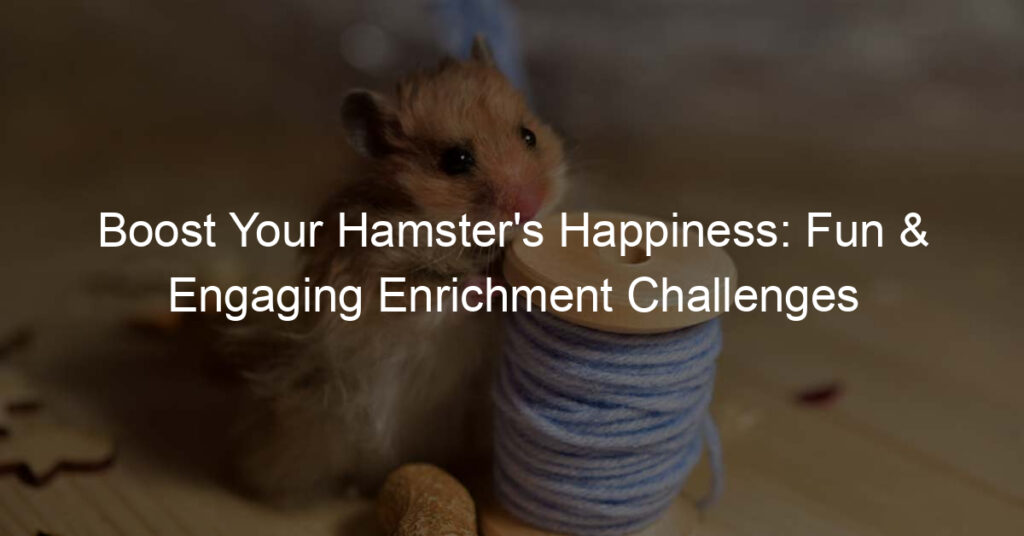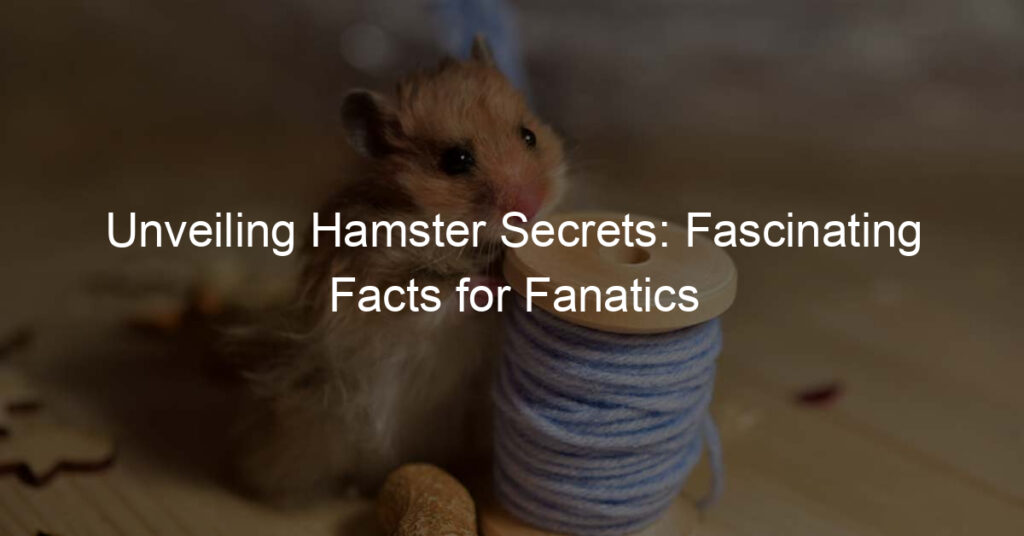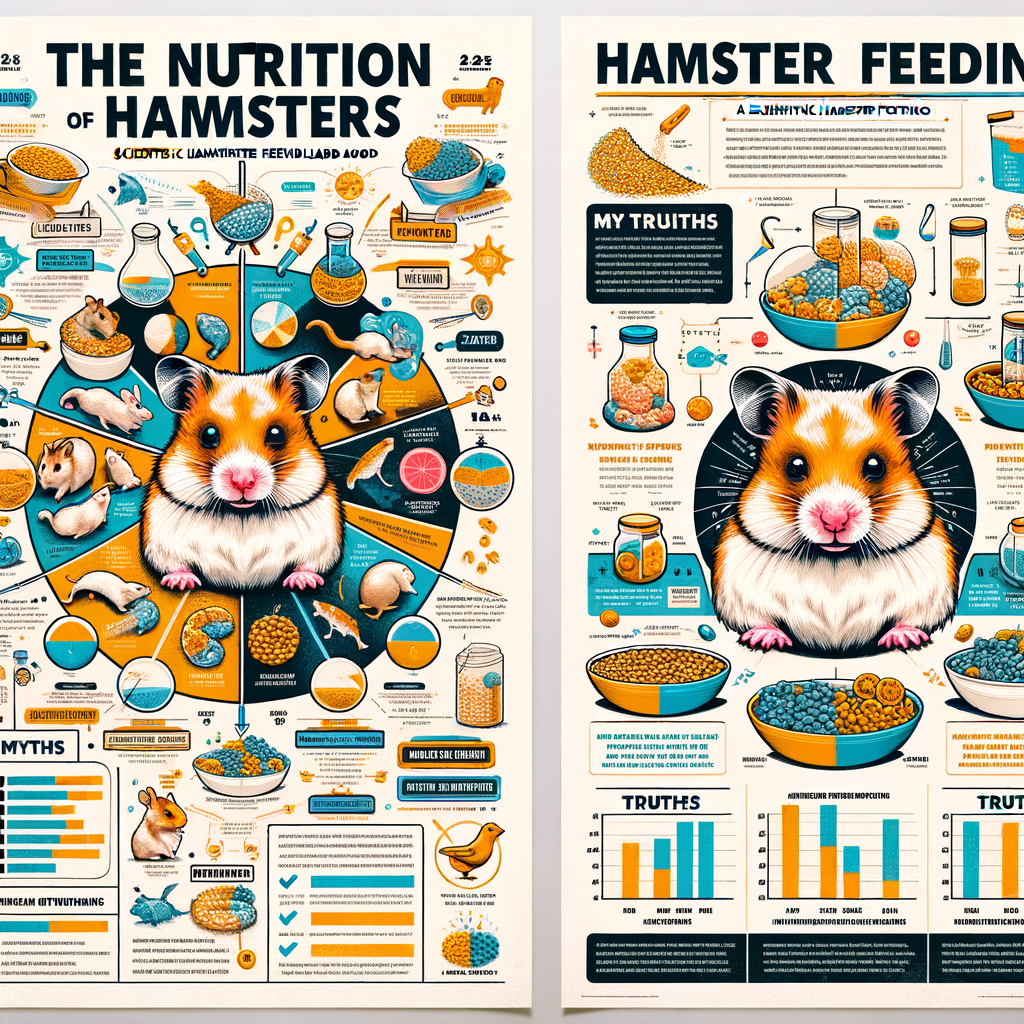
Introduction to Hamster Nutrition
Understanding the nutritional needs of your hamster is crucial for its health and wellbeing. Just like humans, hamsters require a balanced diet to thrive. In this section, we will explore the importance of a balanced diet for hamsters and debunk some common misconceptions about hamster food.
-
Importance of a Balanced Diet for Hamsters
A balanced diet is essential for your hamster’s health. Hamsters need a variety of nutrients to stay healthy, including proteins, carbohydrates, fats, vitamins, and minerals. A balanced diet helps prevent diseases and promotes a long, healthy life.
Proteins are necessary for growth and repair, while carbohydrates provide energy. Fats are also a vital energy source and help absorb vitamins. Vitamins and minerals are needed for various bodily functions, including bone health and immune function.
Feeding your hamster a balanced diet also ensures it maintains a healthy weight. Obesity can lead to various health problems, including heart disease and diabetes. Therefore, it’s important to monitor your hamster’s diet and weight regularly.
-
Common Misconceptions about Hamster Food
There are many misconceptions about what hamsters should eat. One common myth is that hamsters only eat seeds. While seeds are a part of their diet, they should not be the only food source. Hamsters also need fruits, vegetables, and protein sources like insects and cooked eggs.
Another misconception is that hamsters can eat human food. While some human foods are safe for hamsters, others can be harmful. For example, hamsters should never eat onions, garlic, or chocolate as these can be toxic.
It’s also a myth that hamsters can eat as much as they want. Overfeeding can lead to obesity and health problems. It’s important to feed your hamster the right amount and not let it overeat.
Debunking Hamster Diet Myths
There are many misconceptions about what hamsters can and cannot eat. Let’s debunk these myths and learn the truth about hamster nutrition.
Myth 1: Hamsters can eat anything
One common myth is that hamsters can eat anything. This is not true. Like all animals, hamsters have specific dietary needs and there are certain foods that can be harmful to them.
- Truth about hamster nutrition
- Examples of harmful foods for hamsters
Hamsters are omnivores, meaning they eat both plants and meat. Their diet should consist of a balanced mix of fruits, vegetables, grains, and protein. They also need plenty of fresh water. It’s important to feed them a variety of foods to ensure they get all the nutrients they need.
There are certain foods that are harmful to hamsters and should be avoided. These include chocolate, caffeine, onions, garlic, and citrus fruits. These foods can cause digestive problems and other health issues. Also, avoid feeding your hamster any food that is high in sugar or fat.
Remember, a healthy diet is key to a happy and healthy hamster. Always do your research and consult with a vet if you’re unsure about what to feed your hamster.
Myth 2: Hamsters Only Need Seeds
One common misconception about hamster nutrition is that these small, furry creatures only need seeds to stay healthy. This is far from the truth. Let’s debunk this myth and explore the importance of a varied diet and the potential health issues that can arise from a seed-only diet.
- Importance of a Varied Diet
- Case Study: Health Issues Due to a Seed-Only Diet
Just like humans, hamsters need a balanced and varied diet to stay healthy. Seeds are a good source of fat and protein, but they don’t provide all the nutrients a hamster needs. A diet consisting of only seeds can lead to nutritional deficiencies. Hamsters also need fruits, vegetables, and grains to get essential vitamins and minerals. A varied diet not only ensures proper nutrition but also keeps your hamster interested in its food.
Let’s look at a case study to understand the impact of a seed-only diet on a hamster’s health. A pet hamster named Fluffy was fed only seeds for several months. Over time, Fluffy developed health issues such as obesity, weak bones, and dull fur. These were signs of nutritional deficiencies. Once Fluffy’s diet was diversified to include fruits, vegetables, and grains, her health improved significantly. Her fur became shinier, she lost weight, and her energy levels increased. This case study clearly illustrates the dangers of a seed-only diet and the benefits of a varied diet.
In conclusion, while seeds are an important part of a hamster’s diet, they should not be the only food source. A varied diet is crucial for a hamster’s overall health and well-being. So, next time you feed your hamster, remember to include a mix of seeds, fruits, vegetables, and grains.
Hamster Nutrition Facts
Understanding the nutritional needs of your hamster is crucial for their health and well-being. One of the key facts about hamster nutrition is the importance of fresh fruits and vegetables in their diet.
Fact 1: Hamsters need fresh fruits and vegetables
Just like humans, hamsters also need a balanced diet to stay healthy. This includes a variety of fresh fruits and vegetables. Let’s delve into the benefits of fresh produce in a hamster’s diet and some recommended fruits and vegetables for your furry friend.
- Benefits of fresh produce in a hamster’s diet
- Recommended fruits and vegetables for hamsters
Fresh fruits and vegetables are a great source of essential vitamins and minerals for your hamster. They help in boosting the immune system, maintaining healthy skin and fur, and supporting overall growth and development. For instance, vitamin C found in fruits like oranges can help prevent scurvy, a common disease in hamsters.
When it comes to feeding your hamster fresh produce, not all fruits and vegetables are created equal. Some recommended options include apples (without seeds), bananas, blueberries, carrots, cucumbers, and peas. Remember to introduce new foods gradually and in small amounts to avoid upsetting your hamster’s stomach.
It’s important to note that while fresh fruits and vegetables are beneficial, they should only make up a small portion of your hamster’s diet. The majority of their diet should consist of high-quality hamster pellets which provide the right balance of nutrients.
Fact 2: Hamsters Require Protein
Just like humans, hamsters also need protein in their diet. Protein is a vital nutrient that helps in the growth and development of a hamster’s body. Let’s delve deeper into the role of protein in a hamster’s diet and the sources from which they can get it.
- Role of Protein in a Hamster’s Diet
- Sources of Protein Suitable for Hamsters
- Commercial Hamster Food: Most commercial hamster foods contain a good amount of protein. Ensure to check the label for protein content before purchasing.
- Meat: Cooked chicken or turkey can be a great source of protein for hamsters. However, it should be given in moderation and without any seasoning.
- Eggs: Boiled eggs are another excellent source of protein. Remember to cool and chop them into small pieces before serving.
- Nuts and Seeds: Nuts like almonds and seeds like sunflower seeds can provide protein. However, they should be unsalted and given in small amounts due to their high-fat content.
Protein plays a significant role in a hamster’s diet. It helps in the growth and repair of tissues, making it essential for young, growing hamsters. It also aids in maintaining a healthy immune system, helping your furry friend fight off illnesses. Furthermore, protein provides energy and keeps your hamster’s fur shiny and healthy.
There are various sources of protein that are suitable and safe for hamsters. These include:
In conclusion, protein is a crucial part of a hamster’s diet. It’s important to ensure that your hamster is getting enough protein from safe and suitable sources. Always remember to introduce new foods gradually and monitor your hamster’s reaction to them.
Hamster Feeding Guide
Understanding the feeding schedule of your hamster is crucial for its health and longevity. Let’s delve into the specifics of how often and when to feed your furry friend.
Feeding Schedule
-
How often to feed your hamster
Hamsters are small creatures with fast metabolisms, which means they need to eat regularly. It’s recommended that you feed your hamster once or twice a day. However, it’s not just about the frequency but also the quantity and quality of food. Always ensure a balanced diet for your hamster.
-
Best time of day to feed your hamster
Hamsters are nocturnal animals, meaning they are most active during the night. Therefore, the best time to feed your hamster is in the evening when they start to become active. This way, they have fresh food to munch on during their active hours. However, always ensure there’s some food left in their cage in case they get hungry during the day.
Remember, a well-fed hamster is a happy hamster. By following these guidelines, you can ensure your hamster stays healthy and energetic.
Portion Sizes
Understanding the right portion sizes for your hamster is crucial to maintaining their health and happiness. Let’s explore how much to feed your hamster and the risks associated with overfeeding.
- How much to feed your hamster
- Overfeeding and obesity in hamsters
Hamsters are small creatures with tiny stomachs, so they don’t need a lot of food. On average, a hamster should eat about two tablespoons of food per day. This can be a mix of hamster pellets, fresh fruits, and vegetables. Remember, the key is variety to ensure they get all the necessary nutrients.
It’s also important to note that the amount of food may vary depending on the hamster’s age, size, and activity level. For instance, baby hamsters and pregnant females may require more food. Always monitor your hamster’s eating habits and adjust the portions as necessary.
Overfeeding is a common problem in pet hamsters. It can lead to obesity, which can cause serious health issues like heart disease, diabetes, and joint problems. A study showed that around 60% of pet hamsters are overweight or obese.
To prevent overfeeding, measure your hamster’s food portions carefully. Also, avoid giving them too many treats or high-fat foods. Regular exercise is also important. Make sure your hamster has plenty of opportunities to run and play, whether in a hamster wheel or a safe, enclosed area.
| Hamster Type | Average Food Portion | Common Health Issues from Overfeeding |
|---|---|---|
| Golden Hamster | 1-2 tablespoons per day | Obesity, Heart Disease, Diabetes |
| Dwarf Hamster | 1 tablespoon per day | Obesity, Diabetes |
| Roborovski Hamster | 1 tablespoon per day | Obesity, Heart Disease |
In conclusion, portion control is essential in maintaining your hamster’s health. By understanding how much to feed your hamster and the dangers of overfeeding, you can help ensure your furry friend lives a long, healthy life.
Understanding Hamster Nutrition: Fact vs Fiction
Fact: Hamsters need a balanced diet
One of the most important facts about hamster nutrition is that these adorable creatures require a balanced diet to maintain their health. Just like humans, hamsters need a variety of nutrients to thrive. This includes proteins, carbohydrates, fats, vitamins, and minerals.
Proteins are crucial for growth and repair, while carbohydrates provide the energy they need to stay active. Fats, in moderation, are essential for maintaining healthy skin and fur. Vitamins and minerals play a vital role in various bodily functions, such as bone health and immune system support.
| Nutrient | Role in Hamster Health |
|---|---|
| Proteins | Crucial for growth and repair |
| Carbohydrates | Provide energy for activity |
| Fats | Maintain healthy skin and fur |
| Vitamins & Minerals | Support various bodily functions |
It’s important to note that not all foods are created equal when it comes to providing these nutrients. A balanced hamster diet typically includes a mix of commercial hamster food, fresh fruits and vegetables, and occasional treats. Commercial hamster food is specially formulated to meet their nutritional needs, while fresh produce provides additional vitamins and minerals.
Remember, balance is key. Too much of any one food can lead to nutritional imbalances and health problems. For example, feeding your hamster too many sunflower seeds can lead to obesity due to their high fat content. Similarly, an excess of fruits can lead to diarrhea due to their high sugar content.
In conclusion, a balanced diet is essential for your hamster’s health. By providing a variety of foods, you can ensure your furry friend gets all the nutrients they need to thrive.
Fiction: Hamsters can live on seeds alone
It’s a common belief that hamsters can survive solely on seeds. However, this is a myth. While seeds are a crucial part of a hamster’s diet, they should not be the only food source.
Why can’t hamsters live on seeds alone?
Seeds are high in fat and low in essential nutrients. If a hamster’s diet consists only of seeds, they may end up with nutritional deficiencies. For instance, they might lack enough protein, vitamins, and minerals for their health.
Moreover, a diet high in fat can lead to obesity and other health problems in hamsters. It’s essential to provide a balanced diet to ensure your hamster stays healthy and happy.
| Food Type | Benefits | Drawbacks |
|---|---|---|
| Seeds | High in fat, tasty for hamsters | Low in essential nutrients, can lead to obesity |
| Fruits and Vegetables | Rich in vitamins and minerals | Should be given in moderation due to sugar content |
| Protein (Insects, Cooked Meat) | Essential for growth and repair | Should be given in moderation |
What should hamsters eat instead?
Hamsters need a varied diet that includes seeds, fruits, vegetables, and a small amount of protein. This combination ensures they get all the nutrients they need. Remember, variety is key to a healthy hamster diet.
“Balanced nutrition is not just important for us humans. Our little furry friends also need a mix of different foods for a healthy life.” – Anonymous Hamster Expert
So, the next time you feed your hamster, remember that seeds are just a part of their diet. They also need other foods for a balanced and nutritious meal.
Fact: Some Foods are Harmful to Hamsters
Just like us humans, hamsters also have foods that can be harmful to them. It’s important to know what these foods are to ensure your hamster stays healthy and happy. Let’s take a closer look at some of these harmful foods.
Chocolate and Sweets
While it might be tempting to share a piece of your chocolate with your furry friend, it’s not a good idea. Chocolate and other sweets can cause serious health problems for hamsters, including diabetes and obesity.
Garlic and Onions
Garlic and onions are two other foods that are harmful to hamsters. They contain compounds that can damage a hamster’s red blood cells, leading to anemia.
Citrus Fruits
Citrus fruits, like oranges and lemons, are too acidic for hamsters. They can cause upset stomachs and other digestive issues.
| Food | Reason it’s Harmful |
|---|---|
| Chocolate and Sweets | Can cause diabetes and obesity |
| Garlic and Onions | Can damage red blood cells, leading to anemia |
| Citrus Fruits | Too acidic, can cause digestive issues |
Remember, a healthy hamster is a happy hamster. By avoiding these harmful foods, you can help ensure your hamster lives a long, healthy life. Always do your research before introducing a new food into your hamster’s diet.
Conclusion: The Truth about Hamster Nutrition
As we wrap up our comprehensive guide on hamster nutrition, it’s crucial to remember the key points we’ve discussed. Understanding the truth about hamster diet can significantly improve the health and lifespan of your furry friend.
- Key takeaways about hamster diet
- Importance of debunking hamster diet myths
Hamsters require a balanced diet of fruits, vegetables, grains, and proteins. Fresh water should always be available. Treats should be given sparingly, and certain foods like chocolate, caffeine, and onions should be avoided as they can be harmful to hamsters.
There are many misconceptions about what hamsters can and cannot eat. For example, the myth that hamsters can live on seeds alone can lead to malnutrition. It’s essential to debunk these myths to ensure your hamster gets the right nutrients it needs for a healthy life.
Remember, every hamster is unique and may have different dietary needs. Always consult with a vet if you’re unsure about what to feed your hamster. With the right knowledge and care, you can help your hamster thrive and live a long, happy life.
| Food Group | Examples | Frequency |
|---|---|---|
| Fruits | Apples, Pears, Bananas | Once a week |
| Vegetables | Carrots, Broccoli, Peas | Daily |
| Grains | Whole grain bread, Brown rice | Twice a week |
| Proteins | Boiled eggs, Chicken | Once a week |
